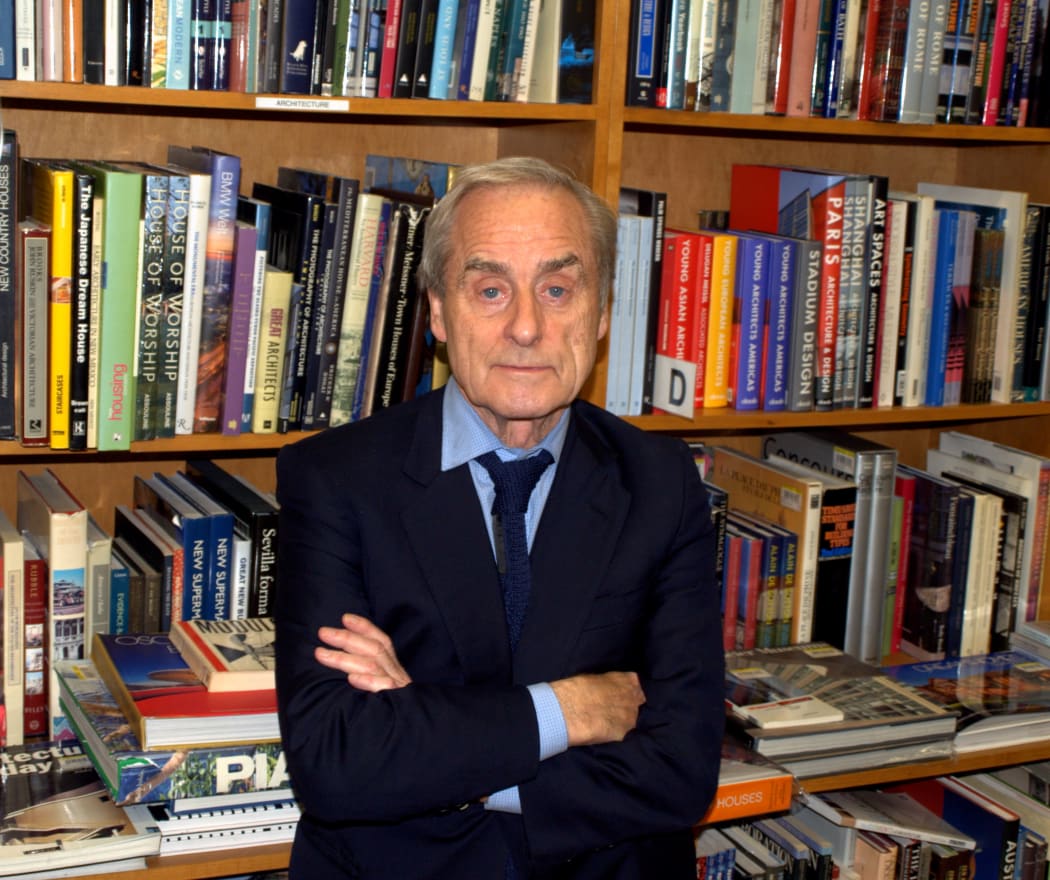Sir Harold Evans would like a word about our use of English.
Evan's was editor of the Sunday Times and The Times in the UK before moving to the US where he worked at The Atlantic Monthly and New York Daily News. In 1986 he co-founded Conde Nast Traveller and is now editor-at large of Reuters news agency.

Harold Evans: no fan of the pleonasm. Photo: Wiki commons
He says we're writing more, with texts and emails, but we're writing badly and that's causing confusion rather than clarity, velocity has priority over lucidity.
Evans explains in his book, Do I Make Myself Clear? Why Writing Well Matters how we can each take a stand against the butchering of clear language.
Evans started his career as a sub-editor at the Manchester Evening News in the era of hot metal. The limitations of printing technology in those days demanded conciseness.
"I was terrified, it was my first job at a really big newspaper, piles of teleprinter copy would pile up and I was told 'Quick! Quick! Quick! Boil it down' we were then working in hot metal so you simply could not do what you can do in cyberspace today which is witter on and on and on and on!
"In a hot metal newspaper when your wording took too long to set, you would be reminded, we don't have rubber type up here, we can't fit this in - you've got to cut it and re-write it."
Evans has a loathing of verbosity which started from his early days attending council meetings and reporting court cases.
"I'd get all this stuff down in immaculate shorthand, then I'd type it up, I thought I wish I could just shorten it."
The book starts with a George Orwell quotation from his essay Politics and the English Language saying bad English corrupts thought and slovenly thought corrupts language.
Evans believes 70 years on from Orwell's essay his predictions are now reality.
"You look at the way some of these business people talk, they talk in passive voices, they use all sorts of odd words, they don't communicate and take twice as much time as needed."
Verbs become nouns in business speak, Evans says.
"Instead of saying 'I came to the realisation' just say 'I realised'.
"These nouns which were once verbs are zombies. For instance implementation, assessment, authorisation, documentation, participation - they're all zombies, the walking dead."
He credits Professor Helen Sword from Auckland University for coining the phrase "zombie nouns."
"She calls them zombie nouns because they cannibalise active verbs, suck the life from adjectives and substitute abstract entities for human beings."
Evans took his blue pencil to report by US security officials about the so-called 'Underwear Bomber'.
"They did a 2000 word report and it's all full of the passive voice - the moon was landed on today by Neil Armstrong.
"It says "steps were taken" what do you mean? What did you do? I am really on the warpath about this kind of opaque language."
Evans says he rewrote the report in 1000 words.
"Most the things I read I can get down to half the length."
Evans takes aim in his book at monologophobia (the fear of using the same word twice in sentence) pleonasms (unnecessary words) and misusing words.
Monologophobia, he says might crop up in sports report where a football, on second mention, becomes a "leather sphere".
"Pleonasms are more troublesome. It's an unnecessary word, like 35 acres of land, well what else? It's bound to be of land, or a complete monopoly, depreciate in value, or continue to remain."
Misused words also annoy Evans.
"There's so many of them; advocated against, you can't advocate against, advocacy is for. Disinterested and uninterested, you don't want an uninterested judge, you want someone who is disinterested which means impartial."
An example recently came from a Donald Trump spokeswoman who said Trump's tax records had been "litigated" during the presidential campaign.
"Litigate, you're using the word not as a nice alternative for argued, you're saying litigate, a judicial word so you're trying to give the impression that your action has been judged by a judiciary which is independent when it's nothing of the kind."
Orwell predicted this in his essay saying this about slippery political language:
"Is designed to make lies sound truthful and murder respectable, and to give an appearance of solidity to pure wind."
Evans hasn't written a book about grammar, he says.
"It's about conveying the meaning of what you're trying to put over. When you have words cluttering it up, well I call them flesh eaters; we're in receipt of is a flesh eater all you mean is we received. All this fatuous language it drives me nuts …These flesh-eaters can take all the life out of a sentence."

